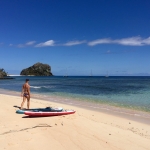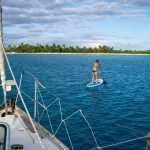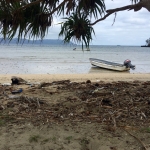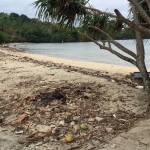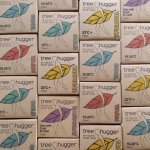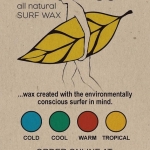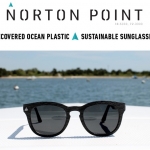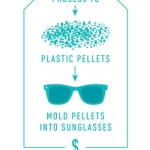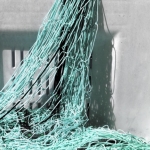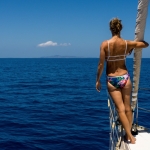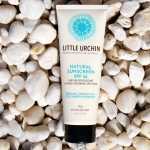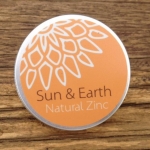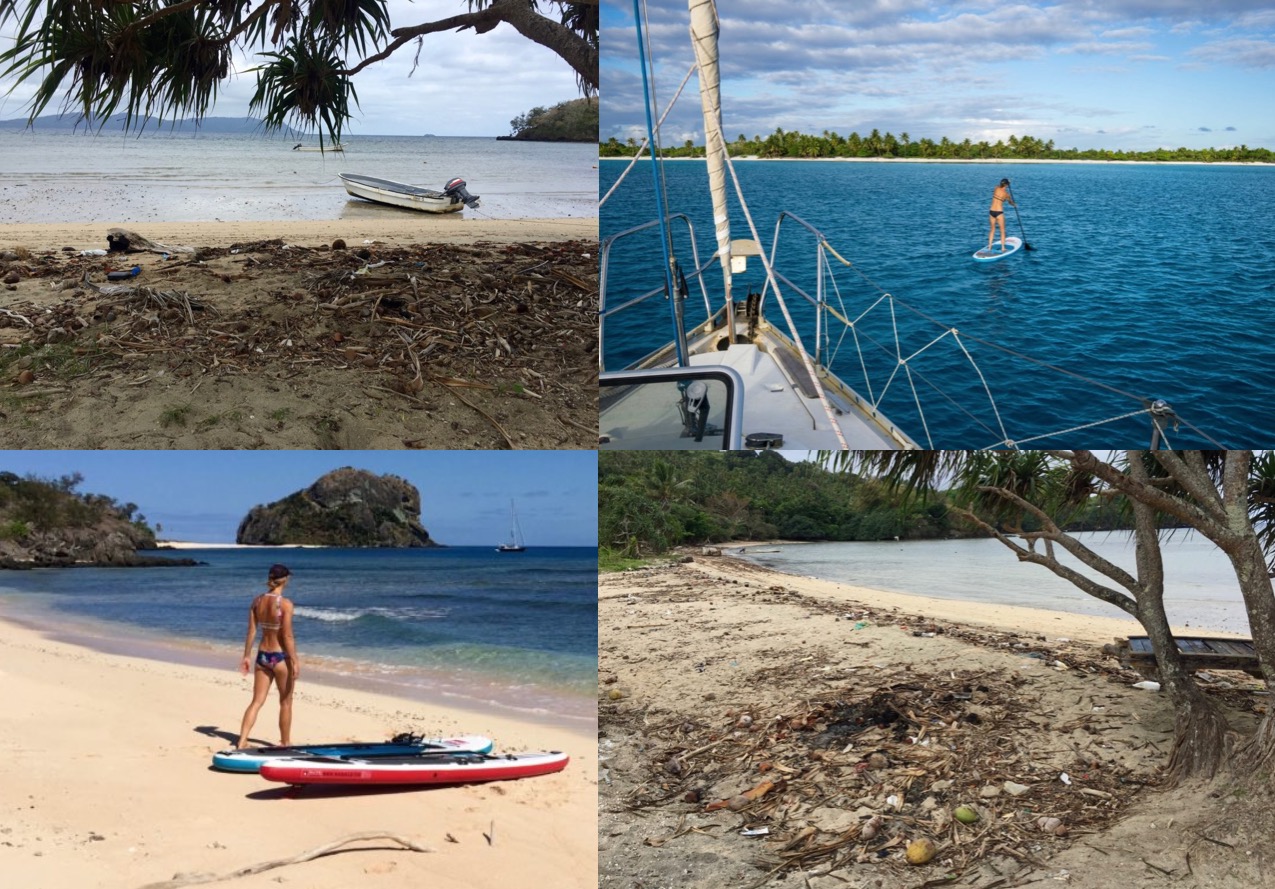
The islands in the South Pacific are known as a slice of paradise, with their golden sandy beaches and crystal clear waters. And as Jess & Nick sail, SUP and surf their way through Polynesia their blogs and photos has us green with envy. But unfortunately as Jess explains ‘all is not well in paradise.’…
So far our photos have shown nothing more than tranquil anchorages, glorious beaches lined with palm trees, and of course the never ending clear turquoise water with its beautiful fishes and coral. And for the most part this is reflective of what surrounds us as we sail our way through the Pacific. But we think it’s important to also mention some of the not so idyllic aspects we are seeing on our voyage.
Having sailed past our fair share of ever present water bottles (we even managed to snag a stray thong/flipflop in our outboard prop?!), we’ve also found many other assorted plastics whilst beachcombing deserted windward shorelines, where the pretty shells have been by far outnumbered by the presence of discarded plastics. From microplastics (small pieces of plastics that have been broken down by the wind/waves/sun into brightly coloured flecks that look tasty to fish and birds) to macroplastics (anything from toothbrushes, shavers, plastic toys, soles of Nike runners, plastic netting and ropes, and of course plastic bags and bottles/lids of all shapes and sizes), we have seen it all (without looking hard). And it’s a little disturbing to say the least.
Of course this is not news to any of us. We all know that the production and our consumption of plastic is unsustainable, and that its life cycle will outlive all of us by thousands of years. And thanks to the internet we’ve all seen images of seabirds and fish that have died from ingesting too many microplastics, and have most probably heard of the floating island of rubbish that has formed in the north west region of the pacific… entirely out of ocean plastics and other debris. It’s as if our society is binging on plastic, and unsuccessfully trying to find the right diet to get things back under control. And it’s not easy, as any dieter will attest. It requires behavioral change and that is hard, even harder when there are no immediate personal repercussions for having to do it.
I’m a great example. On land I would always try to remember my reusable shopping bags at the supermarket, but sometimes I’d forget, and no biggie… because in lucky country Australia they give you plenty of free plastic bags anyway (thankfully it sounds like this is about to change!). And coffee cups… I’ve got a keepsake cup somewhere, but it would not always be with me when I wanted to order a takeaway. And as our rubbish and recycling in Australia all gets whisked away nicely by the garbos each week anyway, its hard to actually gauge what level of rubbish and plastic waste we’re really creating. Out of sight, out of mind. But on a boat things are a little different. There are no garbos, there is no wheelie bin down the driveway, there is just our little boat which is both our floating home and our rubbish tip. Which means we have to think a little more about what we are consuming and how we deal with it.
Food is obviously our biggest consumption onboard, and with all organic matter fed to the fishes, we are left to store and then correctly dispose of our waste plastics, glass, cans and paper/cardboard. So far we’ve seen varying degrees of recycling programs on some of the more developed islands, to the burning of piles of plastic amongst the palm trees in more remote areas. But before we left Australia we had also started thinking about what (nonedible) consumables we would need whilst onboard. Already overflowing with surfboards and SUPs (lets not even get started on the toxic foams and synthetic resins used to make these toys) it really wasn’t much. But a supply of tropical surf wax, some polarized sunnies to make sure we can see the reefs whilst navigating, swimwear, and sun protection to stop us returning as sultanas were really all we thought we were in need of.
With Nick’s background in sustainable materials science we started searching to see if there were products out there that best fit our needs whilst also having an environmental conscience. It was refreshing to find there were companies and entrepreneurs starting to do things differently who more than fit the bill. And needless to say in this process I’ve learnt a lot about a whole bunch of things I can’t believe I’d never really considered before! So here is a run down of what we found after much research into our consumable options, and hence I’d like to introduce our Friends of Te Mana:
Surf Wax
Before looking into this I hate to say I’d never really thought much past the smell of my surf wax…However it turns out the majority of surf waxes available on the market that are made with petrochemical by-products and ingredients that are non-biodegradable, non-sustainable, non-renewable, synthetic, and toxic to the marine environment. Already aware and alarmed by this, Graham and his small family owned and operated business from Lennox Head – Tree Hugger All Natural Surf Wax – produce high quality surf wax that is 100% biodegradable and petrochemical free. And, their wax still smells pretty darn good!
Sunglasses
And I definitely hadn’t thought about the production chain behind my sunglasses… Entrepreneurs Ryan and Rob had however and started Norton Point via a kickstarter campaign in 2015. Based on the island of Martha’s Vineyard in the US, they have developed the first line of sustainable and socially conscious eyewear made from recovered high density polyethylene (HDPE) ocean plastics from the canals and coastlines of Haiti. For every pair of glasses they sell they are committed to cleaning up one pound of plastic from the ocean. They also give back 5% net profit to global clean up, education, and remediation practices. We think that’s pretty impressive, and they’ve definitely succeeded in making us ‘sea plastic differently’.
Swimwear
Having owned my fair share of bikinis over the years, my only real concern with them up until now had been finding a pair that stayed on whilst surfing… I’d never really considered that most swimwear is made from petroleum derived nylon or synthetically produced polyester, or that more environmentally friendly alternatives might be available. Designed by the lovely Fiorella and made using locally based manufacturing in Sydney, Seapia’s beautiful swimwear not only stays on amazingly well with surfing and jumping off boats (not even a little bit of indecency), but by using Econyl fabric (made from recycled fishing nets) and waterbased inks they are (aside from a pair of coconuts) as ocean friendly a bikini as you can get (and far more comfortable).
Sun Protection
Although a little off the topic of plastics, but still relevant to the ocean and our ever increasing awareness of what we’re doing wrong to it… Sunscreen. Good old sunscreen is harmful for many of the little critters in coral reefs?… How did I not know this already?!… Oh wait… I forgot we don’t care about reefs in Australia. The majority of sunscreens on the market contain oxybenzone (among other things), which has been shown to be harmful to coral reefs. But Sydney based Chris and Kieren from Little Urchin thankfully know better and have developed a reef safe and eco friendly natural sunscreen that is good for us fair skinned humans, as well as being good for the ocean. They use zinc oxide as the active ingredient, which has been shown to be safe for the marine environment, as well as a whole load of other natural ingredients that I can actually pronounce. Also using zinc oxide (combined with other natural organic ingredients coconut oil, beeswax, olive oil, cocao powder and butter – that make it smell delicious!) Sun and Earth Natural Zinc is a small business from Byron Bay’s Hinterland that are helping to keep our snozzes and lips extra protected without using any nasties that can harm the reefs we are surfing over.
So there you have it. It doesn’t take much to start thinking a little differently about how and what you consume, and thankfully there are a growing number of companies out there already one step ahead.
Consume wisely… the ocean will thank you.
Words : Jess Cunningham ( Voyage of Te Mana)
So… next time you go to the shops, think about the impact what you’re buying will be having on the environment. And if it’s not good… think again! We are all responsible for the plastics and toxins polluting our oceans. And we can all do something about it by thinking more carefully about what we use and buy. Lets support the great companies around the globe doing their bit to help clean up our oceans.
Incase you missed Jess and Nicks previous articles you can read them here.
